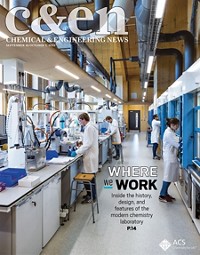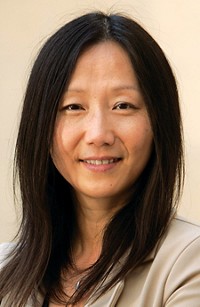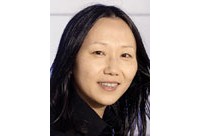Advertisement
Grab your lab coat. Let's get started
Welcome!
Welcome!
Create an account below to get 6 C&EN articles per month, receive newsletters and more - all free.
It seems this is your first time logging in online. Please enter the following information to continue.
As an ACS member you automatically get access to this site. All we need is few more details to create your reading experience.
Not you? Sign in with a different account.
Not you? Sign in with a different account.
ERROR 1
ERROR 1
ERROR 2
ERROR 2
ERROR 2
ERROR 2
ERROR 2
Password and Confirm password must match.
If you have an ACS member number, please enter it here so we can link this account to your membership. (optional)
ERROR 2
ACS values your privacy. By submitting your information, you are gaining access to C&EN and subscribing to our weekly newsletter. We use the information you provide to make your reading experience better, and we will never sell your data to third party members.
Materials
Molecular Electronics: Schön’s Fraud
The field of molecular electronics has moved on and thrived without the defrocked physicist
by Elizabeth K. Wilson
December 19, 2011
| A version of this story appeared in
Volume 89, Issue 51
COVER STORY
Molecular Electronics: Schön’s Fraud
In 2001, C&EN reported several astounding advances in molecular-scale electronics led by Jan Hendrik Schön, a young physicist at Lucent Technologies’ Bell Labs (now part of Alcatel-Lucent). These discoveries included the first molecular-scale transistor and a plastic superconductor.
But Schön’s explosive rise was at its peak. After C&EN’s last piece on his work in April 2002, concerning his discovery of a single-molecule spin valve, Schön fell into disgrace. Several physicists had voiced suspicions about Schön’s prolific discoveries. An investigation revealed that Schön had perpetrated a massive fraud, faking his data on an unprecedented scale.
Bell Labs fired Schön in September 2002. Many of his papers were retracted, including eight published in Science and seven in Nature. In 2004, the University of Konstanz, in Germany, where Schön did his graduate work, revoked his Ph.D. Just recently, in September, after Schön made several appeals, the university upheld its decision.
Schön himself has been virtually invisible. C&EN’s attempts to contact him for this story have not been successful.
Bell Labs, after setting up precautions to avoid future frauds, has distanced itself from the scandal. Company representatives declined to speak with C&EN for this story.
In the meantime, the field of molecular electronics has been thriving without Schön, and his former Bell Labs colleagues who were coauthors on some of the retracted papers have moved on. Zhenan Bao and Christian Kloc were absolved of any complicity in the fraud. Bao is now a chemical engineering professor at Stanford University, and Kloc is a materials science and engineering professor at Singapore’s Nanyang Technological University.
Ironically, a number of the “breakthroughs” that Schön ruined his career by faking have been realized. For example, Kloc tells C&EN that researchers have since developed light-emitting and ambipolar molecular transistors. Many groups have developed single-molecule transistors.
“Nobody’s come up with the plastic superconductor yet, though,” notes Lydia Sohn, now a mechanical engineering professor at the University of California, Berkeley. Sohn was one of the first to draw attention to Schön’s fraud.
Ultimately, the scandal has not dampened enthusiasm for nano and molecular electronics, Sohn tells C&EN. “This whole episode has made people much more aware that something like this could potentially happen,” she says. “We have to educate the next generation about ethics in science and engineering.”





Join the conversation
Contact the reporter
Submit a Letter to the Editor for publication
Engage with us on Twitter